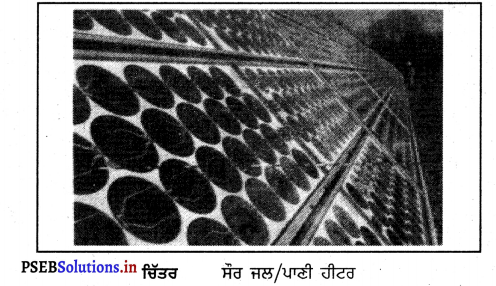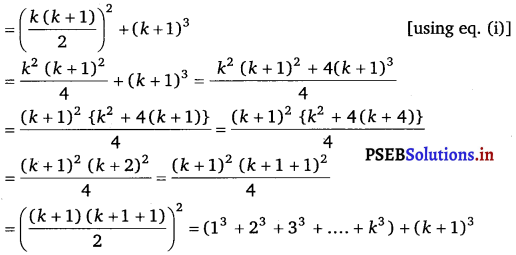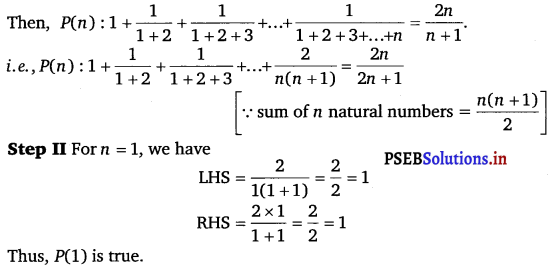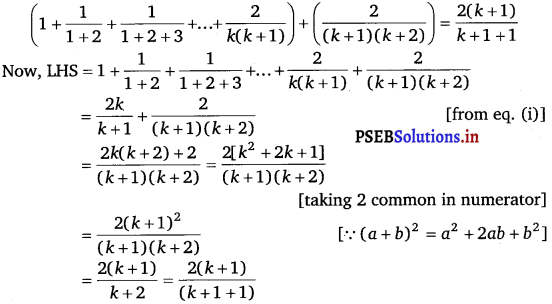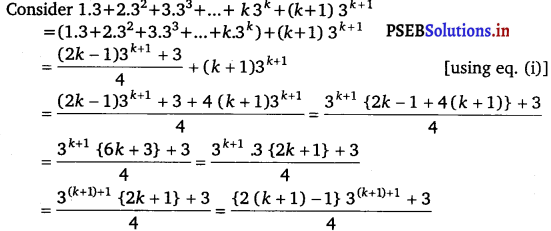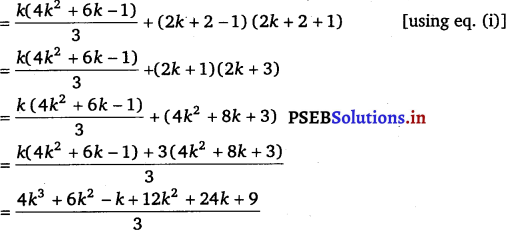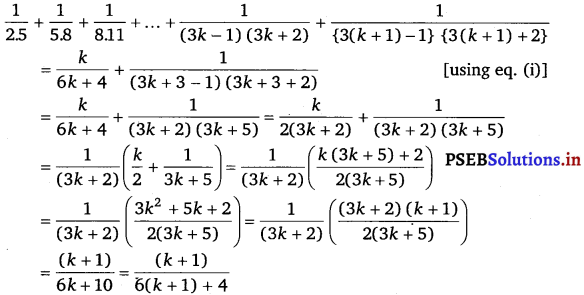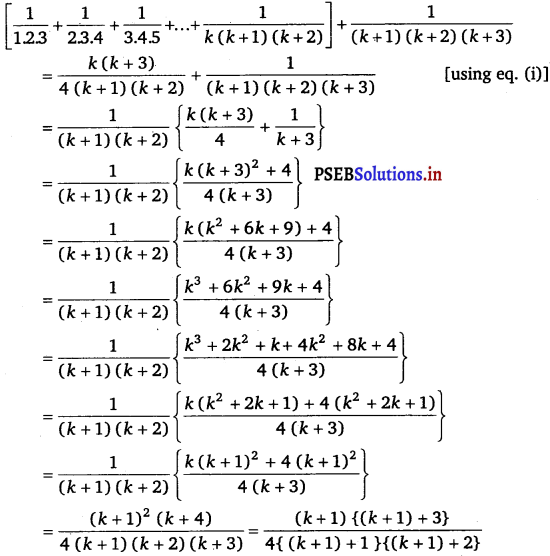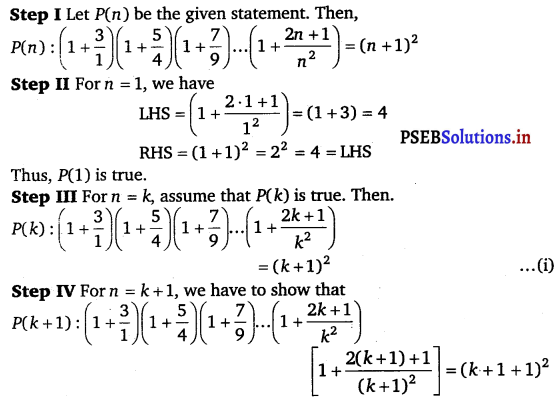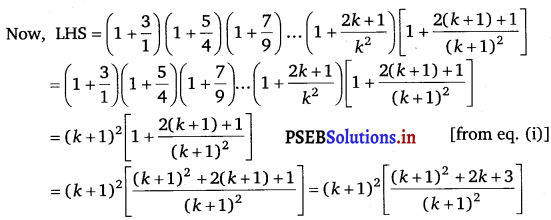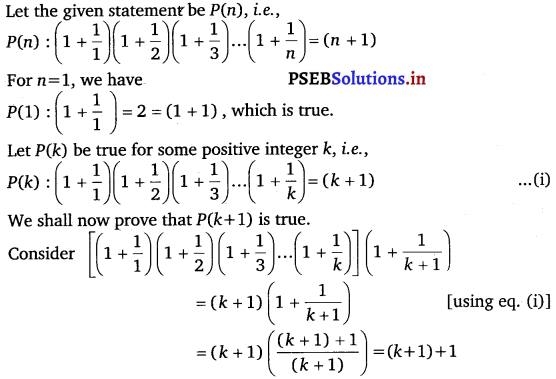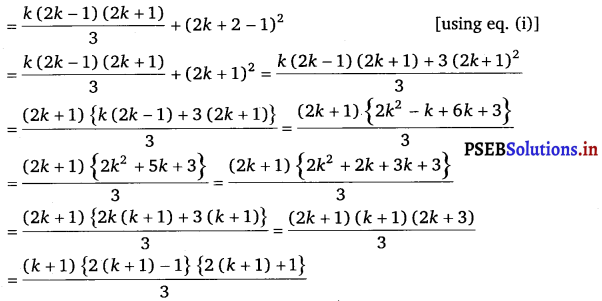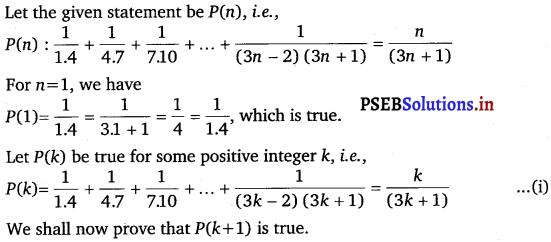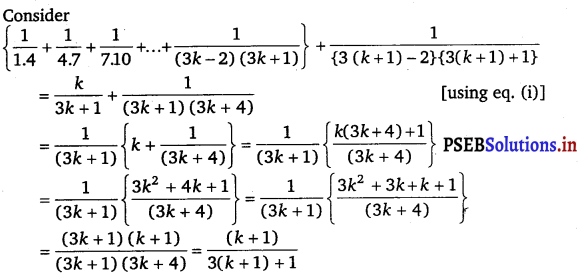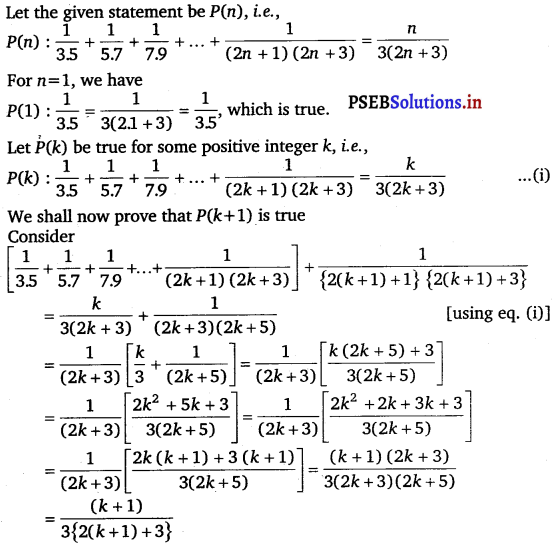Punjab State Board PSEB 11th Class Environmental Education Important Questions Chapter 12 ਉਰਜਾ ਦੇ ਰਵਾਇਤੀ ਸ੍ਰੋਤ Important Questions and Answers.
PSEB 11th Class Environmental Education Important Questions Chapter 12 ਉਰਜਾ ਦੇ ਰਵਾਇਤੀ ਸ੍ਰੋਤ
(ਉ) ਬਹੁਤ ਛੋਟੇ ਉੱਤਰਾਂ ਵਾਲੇ ਪ੍ਰਸ਼ਨ-
ਪ੍ਰਸ਼ਨ 1.
ਊਰਜਾ ਦੀ ਪਰਿਭਾਸ਼ਾ ਲਿਖੋ ।
ਉੱਤਰ-
ਕੰਮ ਕਰਨ ਦੀ ਸਮਰੱਥਾ ਨੂੰ ਊਰਜਾ ਕਹਿੰਦੇ ਹਨ।
ਪ੍ਰਸ਼ਨ 2.
ਮਨੁੱਖ ਦੁਆਰਾ ਕੰਮ ਕਰਨ ਲਈ ਕਿਹੜੀ ਊਰਜਾ ਦਾ ਪ੍ਰਯੋਗ ਹੁੰਦਾ ਹੈ ?
ਉੱਤਰ-
ਮਾਸਪੇਸ਼ੀਆਂ ਤੋਂ ਪੈਦਾ ਹੋਣ ਵਾਲੀ ਉਰਜਾ।
ਪ੍ਰਸ਼ਨ 3.
ਘਰਾਂ ਵਿਚ ਵਰਤੀ ਜਾਣ ਵਾਲੀ ਉਰਜਾ ਦੇ ਦੋ ਮੁੱਖ ਸਾਧਨ ਕਿਹੜੇ ਹਨ ?
ਉੱਤਰ-
ਘਰੇਲੂ ਗੈਸ, ਜਿਸਨੂੰ ਐਲ.ਪੀ.ਜੀ. (Liquified Petroleum Gas) ਵੀ ਕਿਹਾ ਜਾਂਦਾ ਹੈ ਅਤੇ ਮਿੱਟੀ ਦਾ ਤੇਲ।
ਪ੍ਰਸ਼ਨ 4.
L.P.G. ਅਤੇ C.N.G. ਦਾ ਪੂਰਾ ਨਾਂ ਲਿਖੋ ।
ਉੱਤਰ-
- L.PG. – ਲਿਕਵੀਫਾਇਡ ਪੈਟਰੋਲੀਅਮ ਗੈਸ/ਵਿਤ ਪੈਟਰੋਲੀਅਮ ਗੈਸ ॥
- C.N.G. – ਕੰਪਰੈਸਡ ਨੈਚੁਰਲ ਗੈਸ/ਨਿਪੀੜਤ ਕੁਦਰਤੀ ਗੈਸ !
ਪ੍ਰਸ਼ਨ 5.
ਕੋਲੇ ਵਿਚ ਪਾਇਆ ਜਾਣ ਵਾਲਾ ਮੁੱਖ ਤੱਤ ਕਿਹੜਾ ਹੈ ?
ਉੱਤਰ-
ਕੋਲੇ ਵਿਚ ਸਭ ਤੋਂ ਜ਼ਿਆਦਾ ਕਾਰਬਨ ਤੱਤ ਪਾਇਆ ਜਾਂਦਾ ਹੈ।
![]()
ਪ੍ਰਸ਼ਨ 6.
ਸਭ ਤੋਂ ਵੱਧ ਕਾਰਬਨ ਕੋਲੇ ਦੀ ਕਿਸ ਕਿਸਮ ਵਿਚ ਪਾਇਆ ਜਾਂਦਾ ਹੈ ?
ਉੱਤਰ-
ਐੱਥਰੇਸਾਈਟ ਵਿਚ ਸਭ ਤੋਂ ਜ਼ਿਆਦਾ 95% ਕਾਰਬਨ ਪਾਇਆ ਜਾਂਦਾ ਹੈ।
ਪ੍ਰਸ਼ਨ 7.
ਪੈਟਰੋਲੀਅਮ ਕੀ ਹੈ ?
ਉੱਤਰ-
ਪੈਟਰੋਲੀਅਮ ਬਹੁਤ ਸਾਰੇ ਹਾਈਡਰੋਕਾਰਬਨਾਂ ਦਾ ਮਿਸ਼ਰਣ ਹੈ। ‘
ਪ੍ਰਸ਼ਨ 8.
ਕੱਚਾ ਤੇਲ ਕਿਸ ਨੂੰ ਕਹਿੰਦੇ ਹਨ ?
ਉੱਤਰ-
ਤੇਲ ਦੇ ਖੂਹਾਂ ਵਿਚੋਂ ਕੱਢੇ ਗਏ ਕਾਲੇ ਰੰਗ ਦੇ ਸੰਘਣੇ ਵ ਨੂੰ ਕੱਚਾ ਤੇਲ ਕਹਿੰਦੇ ਹਨ।
ਪ੍ਰਸ਼ਨ 9.
ਅੰਸ਼ਕ ਕਸ਼ੀਦਣ ਦੀ ਕਿਰਿਆ ਕਿਸ ਦੇ ਸ਼ੁੱਧੀਕਰਨ ਲਈ ਵਰਤੀ ਜਾਂਦੀ ਹੈ ?
ਉੱਤਰ-
ਪੈਟਰੋਲੀਅਮ ਦੇ ਸ਼ੁੱਧੀਕਰਨ ਲਈ।
ਪ੍ਰਸ਼ਨ 10.
ਪੈਟਰੋਲੀਅਮ ਦੇ ਅੰਸ਼ਕ ਕਸ਼ੀਦਣ ਕਰਨ ਨਾਲ ਕਿਹੜੀਆਂ ਸਹਿਉੱਪਜਾਂ (By products) ਪ੍ਰਾਪਤ ਹੁੰਦੀਆਂ ਹਨ ?
ਉੱਤਰ-
- ਡੀਜ਼ਲ
- ਪੈਟਰੋਲ
- ਮਿੱਟੀ ਦਾ ਤੇਲ
- ਪੈਟਰੋਲੀਅਮ ਗੈਸ।
ਪ੍ਰਸ਼ਨ 11.
ਪੈਟਰੋਲੀਅਮ ਗੈਸ ਵਿਚ ਪਾਏ ਜਾਣ ਵਾਲੇ ਮੁੱਖ ਤੱਤ ਕਿਹੜੇ-ਕਿਹੜੇ ਹਨ ?
ਉੱਤਰ-
ਪੈਟਰੋਲੀਅਮ ਗੈਸ, ਈਥੇਨ, ਪੇਨ, ਬਿਊਟੇਨ ਦਾ ਮਿਸ਼ਰਨ ਹੈ। ਇਸ ਵਿਚ ਮੁੱਖ ਤੱਤ, ਮੀਥੇਨ ਹੈ।
ਪ੍ਰਸ਼ਨ 12.
ਲਿਕਵੀਫਾਇਡ (ਵਿਤ) ਪੈਟਰੋਲੀਅਮ ਗੈਸ ਦੀ ਲੀਕੇਜ ਦਾ ਪਤਾ ਲਗਾਉਣ ਲਈ ਉਸ ਵਿਚ ਕੀ ਮਿਲਾਇਆ ਜਾਂਦਾ ਹੈ ?
ਉੱਤਰ-
ਈਥਾਈਲ ਮਰਕੈਪਟੋਨ (C2H5SH) |
ਪ੍ਰਸ਼ਨ 13.
ਕੁਦਰਤੀ ਗੈਸ ਕੀ ਹੈ ?
ਉੱਤਰ-
ਕੁਦਰਤੀ ਗੈਸ, ਮੀਥੇਨ, ਈਥੇਨ, ਪੇਨ ਦਾ ਮਿਸ਼ਰਣ ਹੈ।
ਪ੍ਰਸ਼ਨ 14.
C.N.G. ਗੈਸ ਕਿਸ ਤਰ੍ਹਾਂ ਬਣਾਈ ਜਾਂਦੀ ਹੈ ?
ਉੱਤਰ-
ਕੁਦਰਤੀ ਗੈਸ ‘ਤੇ ਵੱਧ ਦਬਾਓ ਪਾ ਕੇ ਇਸ ਨੂੰ ਤਰਲ ਬਣਾਇਆ ਜਾਂਦਾ ਹੈ ਜਿਸ ਨਾਲ C.N.G. ਗੈਸ ਦਾ ਨਿਰਮਾਣ ਹੁੰਦਾ ਹੈ ।
![]()
ਪ੍ਰਸ਼ਨ 15.
ਉਰਜਾ ਦੇ ਵੱਖ-ਵੱਖ ਤਰ੍ਹਾਂ ਦੇ ਮੁੱਖ ਸਾਧਨਾਂ ਦੇ ਨਾਂ ਲਿਖੋ ।
ਉੱਤਰ-
- ਨਾ-ਨਵਿਆਉਣਯੋਗ ਊਰਜਾ ਸਾਧਨ
- ਨਵਿਆਉਣਯੋਗ ਊਰਜਾ ਸਾਧਨ।’
ਪ੍ਰਸ਼ਨ 16.
ਨਾ-ਨਵਿਆਉਣਯੋਗ ਊਰਜਾ ਸਾਧਨ ਕਿਸ ਨੂੰ ਕਹਿੰਦੇ ਹਨ ?
ਉੱਤਰ-
ਉਹ ਉਰਜਾ ਸਾਧਨ ਜਿਨ੍ਹਾਂ ਦਾ ਦੁਬਾਰਾ ਨਿਰਮਾਣ ਨਹੀਂ ਕੀਤਾ ਜਾ ਸਕਦਾ, ਜਿਹੜੇ ਇਕ ਵਾਰੀ ਵਰਤੋਂ ਕਰਨ ਤੋਂ ਬਾਅਦ ਖ਼ਤਮ ਹੋ ਜਾਣਗੇ, ਉਨ੍ਹਾਂ ਨੂੰ ਨਾ-ਨਵਿਆਉਣ ਯੋਗ ਊਰਜਾ ਸਾਧਨ ਕਿਹਾ ਜਾਂਦਾ ਹੈ; ਜਿਵੇਂ ਕਿ-ਕੋਲਾ, ਪੈਟਰੋਲੀਅਮ ਆਦਿ ।
ਪ੍ਰਸ਼ਨ 17.
ਸਮੁੰਦਰੀ ਜੀਵ-ਜੰਤੂਆਂ ਦੀਆਂ ਹੱਡੀਆਂ ਅਤੇ ਮਲ-ਤਿਆਗ ਤੋਂ ਕਿਹੜਾ ਬਾਲਣ ਬਣਦਾ ਹੈ ?
ਉੱਤਰ-
ਪੈਟਰੋਲੀਅਮ।
ਪ੍ਰਸ਼ਨ 18.
ਭਾਰਤ ਵਿਚ ਸਭ ਤੋਂ ਜ਼ਿਆਦਾ ਕੋਲੇ ਦੇ ਭੰਡਾਰ ਕਿਹੜੇ ਰਾਜਾਂ ਵਿਚ ਹਨ ?
ਉੱਤਰ-
ਭਾਰਤ ਵਿਚ ਸਭ ਤੋਂ ਜ਼ਿਆਦਾ ਕੋਲੇ ਦੇ ਭੰਡਾਰ ਝਾਰਖੰਡ, ਉੜੀਸਾ, ਮੱਧ ਪ੍ਰਦੇਸ਼ ਵਿਚ ਪਾਏ ਜਾਂਦੇ ਹਨ।
ਪ੍ਰਸ਼ਨ 19.
ਭਾਰਤ ਵਿਚ ਖਣਿਜ ਤੇਲ ਸੁਧਾਈ ਦੀਆਂ ਕਿੰਨੀਆਂ ਪ੍ਰਯੋਗਸ਼ਾਲਾਵਾਂ ਹਨ ?
ਉੱਤਰ-13.
ਪ੍ਰਸ਼ਨ 20.
ਭਾਰਤ ਵਿਚ ਕੁਦਰਤੀ ਗੈਸ ਪਹੁੰਚਾਉਣ ਵਾਲੀ ਗੈਸ ਪਾਈਪ ਲਾਈਨ ਦਾ ਨਾਂ ਕੀ ਹੈ ?
ਉੱਤਰ-
ਹਜੀਰਾ-ਵਿਜੇਪੁਰ-ਜਗਦੀਸ਼ਪੁਰ ਗੈਸ ਪਾਈਪ ਲਾਈਨ। ਇਸ ਦੀ ਲੰਬਾਈ 1750 ਕਿਲੋਮੀਟਰ ਹੈ।
![]()
ਪ੍ਰਸ਼ਨ 21.
ਕੋਲੇ ਦੀ ਕਿਹੜੀ ਕਿਸਮ ਵਿਚ ਗੰਧਕ (Sulphur) ਹੈ ?
ਉੱਤਰ-
ਬਿਟੂਮਿਨਸ ਕਿਸਮ ।
ਪ੍ਰਸ਼ਨ 22.
ਪੈਟਰੋਲੀਅਮ ਵਿੱਚ ਪਾਏ ਜਾਣ ਵਾਲੇ ਤੱਤਾਂ ਦੇ ਨਾਮ ਲਿਖੋ ।
ਉੱਤਰ-
ਹਾਈਡ੍ਰੋਕਾਰਬਨ ਦੇ ਯੋਗਿਕ ਅਤੇ ਥੋੜ੍ਹੀ ਜਿਹੀ ਮਾਤਰਾ ਵਿਚ ਗੰਧਕ, ਨਾਈਟ੍ਰੋਜਨ ਅਤੇ ਆਕਸੀਜਨ ।
ਪ੍ਰਸ਼ਨ 23.
ਪੈਟਰੋਲੀਅਮ ਦਾ ਸ਼ਬਦ ਕਿਸ ਭਾਸ਼ਾ ਤੋਂ ਘੜਿਆ ਗਿਆ ਹੈ ?
ਉੱਤਰ-
ਪੈਟਰੋਲੀਅਮ ਦਾ ਸ਼ਬਦ ਲਾਤੀਨੀ (Greek) ਭਾਸ਼ਾ ਤੋਂ ਲਿਆ ਗਿਆ ਹੈ । ਇਹ ਸ਼ਬਦ ਹਨ ਪੈਣਾ (Petra), ਜਿਸ ਦਾ ਅਰਥ ਹੈ ਚੱਟਾਨ (Rock) ਅਤੇ ਓਲੀਅਮ (Oleam) ਜਿਸ ਦਾ ਅਰਥ ਹੈ ਤੇਲ (Oil)
ਪ੍ਰਸ਼ਨ 24.
ਕੁਦਰਤੀ ਗੈਸ ਦੇ ਮੁੱਖ ਅੰਸ਼ਾਂ ਦੇ ਨਾਮ ਲਿਖੋ ।
ਉੱਤਰ-
ਕੁਦਰਤੀ ਗੈਸ ਦੇ ਮੁੱਖ ਅੰਸ਼ ਹਨ| ਮੀਥੇਨ ਬਹੁਤ ਅਧਿਕ ਮਾਤਰਾ ਵਿਚ ਹੈ ਅਤੇ ਇਸ ਗੈਸ ਦੇ ਇਲਾਵਾ ਪੇਨ (Propane) ਅਤੇ ਬਿਊਟੇਨ (Butane) ਥੋੜ੍ਹੀ-ਥੋੜ੍ਹੀ ਮਾਤਰਾ ਵਿਚ ਪਾਈਆਂ ਜਾਂਦੀਆਂ ਹਨ ।
(ਅ) ਛੋਟੇ ਉੱਤਰਾਂ ਵਾਲੇ ਪ੍ਰਸ਼ਨ (Type I)
ਪ੍ਰਸ਼ਨ 1.
ਕੋਕ (Coke) ਇਕ ਚੰਗਾ ਬਾਲਣ ਹੈ। ਕਿਉਂ ?
ਉੱਤਰ-
ਕੋਕ (Coke) ਇਕ ਚੰਗਾ ਬਾਲਣ ਇਸ ਕਰਕੇ ਹੈ ਕਿਉਂਕਿ ਇਸ ਦਾ ਧੂੰਆਂ ਘੱਟ ਹੁੰਦਾ ਹੈ। ਇਸ ਦੀ ਤਾਪ ਊਰਜਾ ਵੱਧ ਹੁੰਦੀ ਹੈ। ਜਲਣ ਵੇਲੇ ਇਸ ਵਿਚੋਂ ਜ਼ਹਿਰੀਲੀਆਂ ਗੈਸਾਂ ਘੱਟ ਨਿਕਲਦੀਆਂ ਹਨ। ਇਸ ਦਾ ਬਲਣ ਦਾ ਤਾਪਮਾਨ ਘੱਟ ਹੁੰਦਾ ਹੈ।
ਪ੍ਰਸ਼ਨ 2.
L.P.G. (Liquified Petroleum Gas) ਨੂੰ ਸਭ ਤੋਂ ਚੰਗਾ ਬਾਲਣ ਕਿਉਂ ਕਿਹਾ ਜਾਂਦਾ ਹੈ ?
ਉੱਤਰ-
LP.G. ਨੂੰ ਹੇਠ ਲਿਖੇ ਕਾਰਨਾਂ ਕਰਕੇ ਇਕ ਚੰਗਾ ਬਾਲਣ ਕਿਹਾ ਜਾਂਦਾ ਹੈ –
- ਇਸ ਦਾ ਤਾਪ ਕਲੋਰੀਮਾਨ 50 kj/g ਹੈ। ਇਸ ਲਈ ਇਹ ਵੱਧ ਤਾਪ ਦਿੰਦੀ ਹੈ ।
- ਇਹ ਗੈਸ ਬਲਣ ਵੇਲੇ ਧੂੰਆਂ ਪੈਦਾ ਨਹੀਂ ਕਰਦੀ।
- ਇਹ ਆਸਾਨੀ ਨਾਲ ਬਲਦੀ ਹੈ।
- ਪੂਰੀ ਤਰ੍ਹਾਂ ਬਲਣ ਦੇ ਕਾਰਨ ਇਸ ਦਾ ਅਵਸ਼ੇਸ਼ ਨਹੀਂ ਬਚਦਾ।
- ਇਸ ਦੇ ਬਲਣ ਨਾਲ ਕੋਈ ਹਾਨੀਕਾਰਕ ਗੈਸ ਪੈਦਾ ਨਹੀਂ ਹੁੰਦੀ।
- ਇਸ ਨੂੰ ਲਿਆਉਣਾ ਅਤੇ ਲਿਜਾਣਾ ਆਸਾਨ ਹੈ।
ਪ੍ਰਸ਼ਨ 3.
L.P.G. (Liquified Petroleum Gas) ਇਕ ਰੰਗਹੀਨ ਅਤੇ ਗੰਧਹੀਨ ਗੈਸ ਹੈ ਇਸ ਦੇ ਰਿਸਾਓ ਦਾ ਪਤਾ ਲਗਾਉਣ ਲਈ ਇਸ ਵਿਚ ਕੀ ਮਿਲਾਇਆ ਜਾਂਦਾ ਹੈ ?
ਉੱਤਰ-
L.P.G. ਗੈਸ ਦੇ ਰਿਸਾਓ ਦਾ ਪਤਾ ਲਗਾਉਣ ਲਈ ਇਸ ਵਿਚ ਥੋੜ੍ਹੀ ਮਾਤਰਾ ਵਿਚ ਈਥਾਈਲ ਮਰਕੈਪਟਨ (C,HASH) ਮਿਲਾਇਆ ਜਾਂਦਾ ਹੈ। ਇਹ ਇਕ ਤੇਜ਼ ਧ ਵਾਲਾ ਪਦਾਰਥ ਹੁੰਦਾ ਹੈ ਜਿਸ ਦੇ ਕਾਰਨ ਇਸ ਦੇ ਰਿਸਾਓ ਦਾ ਪਤਾ ਲੱਗ ਜਾਂਦਾ ਹੈ।
![]()
ਪ੍ਰਸ਼ਨ 4.
ਕੁਦਰਤੀ ਗੈਸ (Natural Gas) ਸਾਨੂੰ ਕਿੱਥੋਂ ਪ੍ਰਾਪਤ ਹੁੰਦੀ ਹੈ ? ਇਸ ਨੂੰ ਸਾਫ਼ ਸੁਥਰਾ ਬਾਲਣ ਕਿਉਂ ਕਿਹਾ ਜਾਂਦਾ ਹੈ ?
ਉੱਤਰ-
ਕੁਦਰਤੀ ਗੈਸ ਆਮ ਤੌਰ ‘ਤੇ ਪੈਟਰੋਲੀਅਮ ਵਾਲੇ ਖੂਹਾਂ ਦੀ ਉੱਪਰੀ ਤਹਿ ‘ਤੇ ਪਾਈ ਜਾਂਦੀ ਹੈ। ਕਦੀ-ਕਦੀ ਇਹ ਕੁਦਰਤੀ ਤੌਰ ‘ਤੇ ਵਾਤਾਵਰਣ ਵਿਚ ਪਾਈ ਜਾਂਦੀ ਹੈ। ਇਸ ਨੂੰ ਸਾਫ਼ ਸੁਥਰਾ ਬਾਲਣ ਇਸ ਲਈ ਕਿਹਾ ਜਾਂਦਾ ਹੈ ਕਿਉਂਕਿ ਇਸ ਦੇ ਬਲਣ ਨਾਲ ਹਾਨੀਕਾਰਕ ਗੈਸਾਂ ਅਤੇ ਜ਼ਹਿਰੀਲੀਆਂ ਗੈਸਾਂ ਪੈਦਾ ਨਹੀਂ ਹੁੰਦੀਆਂ ਹਨ। ਇਹ ਇਕ ਧੂੰਆਂ ਰਹਿਤ ਬਾਲਣ ਹੈ। ਇਸ ਕਰਕੇ ਇਸ ਦਾ ਜਲਵਾਯੂ ’ਤੇ ਕੋਈ ਮਾੜਾ ਅਸਰ ਨਹੀਂ ਪੈਂਦਾ ਅਤੇ ਨਾ ਹੀ ਬਲਣ ਤੋਂ ਬਾਅਦ ਇਸ ਦੀ ਸਵਾਹ ਬਚਦੀ ਹੈ।
ਪ੍ਰਸ਼ਨ 5.
ਜੀਵਨ ਦੇ ਕਿਹੜੇ-ਕਿਹੜੇ ਪਹਿਲੂਆਂ (ਕੰਮਾਂ ਵਿਚ ਊਰਜਾ ਦਾ ਉਪਯੋਗ ਹੁੰਦਾ ਹੈ ?
ਉੱਤਰ-
ਰੋਜ਼ਾਨਾ ਜੀਵਨ ਦੇ ਹਰੇਕ ਕੰਮ ਲਈ ਸਾਨੂੰ ਉਰਜਾ ਦੀ ਲੋੜ ਪੈਂਦੀ ਹੈ। ਭੋਜਨ ਬਣਾਉਣ ਲਈ ਅਤੇ ਰੌਸ਼ਨੀ ਲਈ, ਆਵਾਜਾਈ ਦੇ ਸਾਧਨਾਂ ਲਈ, ਕਾਰਖ਼ਾਨਿਆਂ ਅਤੇ ਖੇਤੀਬਾੜੀ ਲਈ ਸਾਨੂੰ ਊਰਜਾ ਦੀ ਜ਼ਰੂਰਤ ਪੈਂਦੀ ਹੈ।
ਪ੍ਰਸ਼ਨ 6.
ਕੋਲੇ ਦਾ ਪ੍ਰਯੋਗ ਕਿਹੜੇ ਕਾਰਬਨਿਕ ਤੱਤਾਂ ਨੂੰ ਬਣਾਉਣ ਲਈ ਕੀਤਾ ਜਾਂਦਾ ਹੈ ?
ਉੱਤਰ-
ਕੋਲੇ ਦੀ ਵਰਤੋਂ, ਕੋਲਾ, ਗੈਸ, ਕੋਕ, ਪੈਟਰੋਲੀਅਮ ਅਤੇ ਹੋਰ ਕਈ ਕਾਰਬਨਿਕ ਤੱਤਾਂ; ਜਿਵੇਂ-ਬੈਨਜ਼ੀਨ (Benzene), ਟਾਈਨ (Toluene), ਐਨੇਲੀਨ (Aniline), ਐਨਥਰਾਸੀਨ (Anthracene) ਆਦਿ ਬਣਾਉਣ ਲਈ ਕੀਤੀ ਜਾਂਦੀ ਹੈ।
ਪ੍ਰਸ਼ਨ 7.
ਪੈਟਰੋਲੀਅਮ ਦੇ ਉਪਯੋਗ ਨਾਲ ਹਵਾ ਵਿਚ ਪ੍ਰਦੂਸ਼ਣ ਕਿਵੇਂ ਫੈਲਦਾ ਹੈ ?
ਉੱਤਰ-
ਕਾਰਬਨਿਕ ਉਤਪਾਦਨ ਹੋਣ ਦੇ ਕਾਰਨ ਪੈਟਰੋਲੀਅਮ ਦੇ ਜਲਣ ਦੇ ਫਲਸਰੂਪ ਕਾਰਬਨ ਡਾਈਆਕਸਾਈਡ ਅਤੇ ਕਾਰਬਨ ਮੋਨੋਆਕਸਾਈਡ ਪੈਦਾ ਹੁੰਦੀ ਹੈ, ਜਿਸ ਦੇ ਕਾਰਨ ਹਵਾ ਵਿਚ ਪ੍ਰਦੂਸ਼ਣ ਫੈਲਦਾ ਹੈ। ਇਸ ਤੋਂ ਇਲਾਵਾ ਤੇਲ ਸੋਧਕ ਕਾਰਖ਼ਾਨੇ ਅਤੇ ਤੇਲ ਦੇ ਵੱਡੇ ਭੰਡਾਰਾਂ ਵਿਚ ਅੱਗ ਲੱਗਣ ਨਾਲ ਹਵਾ ਵਿਚ ਪ੍ਰਦੂਸ਼ਣ ਫੈਲਦਾ ਹੈ।
ਪ੍ਰਸ਼ਨ 8.
ਪੈਟਰੋਲੀਅਮ ਦੀ ਸੁਧਾਈ ਪਿੱਛੋਂ ਮਿਲਣ ਵਾਲੇ ਬਾਲਣਾਂ ਦੀ ਵਰਤੋਂ ਲਿਖੋ ।
ਉੱਤਰ-
ਪੈਟਰੋਲੀਅਮ ਨੂੰ ਸਾਫ਼ ਕਰਨ ਤੋਂ ਬਾਅਦ ਹੇਠ ਲਿਖੇ ਬਾਲਣ ਪ੍ਰਾਪਤ ਹੁੰਦੇ ਹਨ –
- ਵਿਤ ਪੈਟਰੋਲੀਅਮ ਗੈਸ (L.P.G. ਇਸ ਨੂੰ ਘਰੇਲੂ ਗੈਸ ਵੀ ਕਿਹਾ ਜਾਂਦਾ ਹੈ । ਇਸ ਦੀ ਵਰਤੋਂ ਘਰਾਂ ਵਿਚ ਖਾਣਾ ਬਣਾਉਣ ਲਈ ਕੀਤੀ ਜਾਂਦੀ ਹੈ ।
- ਪੈਟਰੋਲ (Petrol)-ਇਸ ਦੀ ਵਰਤੋਂ ਆਮ ਤੌਰ ‘ਤੇ ਕਾਰ, ਸਕੂਟਰ ਵਰਗੇ ਹਲਕੇ ਵਾਹਨਾਂ ਨੂੰ ਚਲਾਉਣ ਵਾਸਤੇ ਕੀਤੀ ਜਾਂਦੀ ਹੈ।
- ਮਿੱਟੀ ਦਾ ਤੇਲ (Kerosene Oil)-ਇਸ ਦੀ ਵਰਤੋਂ ਘਰਾਂ ਵਿਚ ਸਟੋਵ ਅਤੇ ਲੈਂਪ ਜਗਾਉਣ ਲਈ ਕੀਤੀ ਜਾਂਦੀ ਹੈ।
ਪ੍ਰਸ਼ਨ 9.
ਪੈਟਰੋਲੀਅਮ ਦੀ ਉਤਪੱਤੀ ‘ਤੇ ਨੋਟ ਲਿਖੋ ।
ਉੱਤਰ-
ਸੰਸਾਰ ਵਿਚ ਪੈਟਰੋਲੀਅਮ ਦੇ ਭੰਡਾਰਾਂ ਦੀ ਭਰਮਾਰ ਹੈ, ਕੁਵੈਤ, ਸਾਉਦੀ ਅਰਬ ਇਰਾਨ, ਇਰਾਕ, ਸੰਯੁਕਤ ਅਰਬ ਅਮੀਰਾਤ ਵਰਗੇ ਦੇਸ਼ਾਂ ਵਿਚ ਵਿਸ਼ਵ ਦੇ ਤੇਲ ਦਾ ਸਭ ਤੋਂ ਵੱਧ 2/3 ਭਾਗ ਹੈ। ਅਮਰੀਕਾ, ਰੂਸ, ਬ੍ਰਿਟੇਨ ਵਿਚ ਵੀ ਤੇਲ ਦੇ ਵੱਡੇ ਭੰਡਾਰ ਹਨ। ਭਾਰਤ ਵਿਚ ਤੇਲ ਦਾ ਸਭ ਤੋਂ ਪਹਿਲਾ ਖੂਹ 1867 ਵਿਚ ਮੁਕੁਮ (ਅਸਾਮ) ਵਿਚ ਬਣਾਇਆ ਗਿਆ। , ਭਾਰਤ ਵਿਚ ਤੇਲ ਦੇ ਭੰਡਾਰ, ਸੰਸਾਰ ਦੇ ਕੁੱਲ ਭੰਡਾਰਾਂ ਦਾ 0.4% ਭਾਗ ਹੈ। ਘਰੇਲੂ ਤੇਲ ਦਾ ਉਤਪਾਦਨ 33 ਮਿਲੀਅਨ ਮੀਟ੍ਰਿਕ ਟਨ ਹੈ ਜੋ ਸਾਲਾਨਾ ਮੰਗ ਦੀ 35% ਭਾਗ ਦੀ ਪੂਰਤੀ ਕਰਦਾ ਹੈ। | ਭਾਰਤ ਵਿੱਚ ਪੈਟਰੋਲੀਅਮ (ਕੱਚਾ ਤੇਲ ਆਸਾਮ ਅਤੇ ਗੁਜਰਾਤ ਵਿੱਚ ਪਾਇਆ ਜਾਂਦਾ ਹੈ । ਪੈਟਰੋਲੀਅਮ ਦਾ ਨਿਰਯਾਤ ਕਰਨ ਵਾਲੇ ਦੇਸ਼ਾਂ ਦੇ ਸੰਗਠਨ Organisation of Petroleum Exporting Countries ਅਰਥਾਤ 0PEC ਵਿਸ਼ਵ ਭਰ ਦੀਆਂ ਪੈਟਰੋਲ ਸੰਬੰਧੀ 77% ਲੋੜਾਂ ਪੂਰੀਆਂ ਕਰਦਾ ਹੈ ।
![]()
ਪ੍ਰਸ਼ਨ 10.
ਭਾਰਤ ਵਿਚ ਕੋਲੇ ਦੇ ਉਤਪਾਦਨ ‘ਤੇ ਇਕ ਸੰਖੇਪ ਟਿੱਪਣੀ ਲਿਖੋ।
ਉੱਤਰ-
ਸੰਸਾਰ ਵਿਚ ਕੋਲੇ ਦੇ ਕੁੱਲ ਉਤਪਾਦਨ ਦਾ 60% ਭਾਗ ਕੇਵਲ ਚੀਨ, ਸੰਯੁਕਤ ਰਾਜ ਅਮਰੀਕਾ ਅਤੇ ਭੂਤਪੂਰਵ ਸੋਵੀਅਤ ਸੰਘ ਤੋਂ ਹੀ ਪ੍ਰਾਪਤ ਹੁੰਦਾ ਹੈ। ਭਾਰਤ ਕੋਲ, ਸੰਸਾਰ ਦਾ 1.7 ਪ੍ਰਤੀਸ਼ਤ ਭਾਗ ਕੋਲਾ ਹੈ। ਭਾਰਤ ਵਿਚ ਦੋ ਤਰ੍ਹਾਂ ਦੇ ਕੋਲੇ ਦੇ ਖੇਤਰ ਹਨ –
- ਗੋਂਡਵਾਨਾ ਕੋਲਾ ਖੇਤਰ (Gondwon of coal area)
- ਟਰਸ਼ਰੀ ਕੋਲਾ ਖੇਤਰ (Tertiary coal area) ।
ਭਾਰਤ ਦੇ ਜਿਓਲੌਜੀਕਲ ਸਰਵੇ (Geological survey of India) ਦੇ ਅਨੁਸਾਰ ਜਨਵਰੀ 2001 ਭਾਰਤ ਵਿੱਚ ਮੌਜੂਦ ਕੋਲੇ ਦੇ ਭੰਡਾਰਾਂ ਬਾਰੇ ਜਾਣਕਾਰੀ ਪ੍ਰਾਪਤ ਹੋਈ ਹੈ, ਉਸ ਦੀ ਮਾਤਰਾ 84.41 ਬਿਲੀਅਨ ਟਨ ਹੈ ਅਤੇ ਕੋਲੇ ਦੇ ਇਹ ਭੰਡਾਰ ਮੁੱਖ ਤੌਰ ‘ਤੇ ਬਿਹਾਰ, ਪੱਛਮੀ ਬੰਗਾਲ, ਆਂਧਰਾ ਪ੍ਰਦੇਸ਼, ਮੱਧ ਪ੍ਰਦੇਸ਼ ਅਤੇ ਮਹਾਂਰਾਸ਼ਟਰ ਵਿਖੇ ਸਥਿਤ ਹਨ । ਭਾਰਤ ਵਿਚ ਊਰਜਾ ਦੀ ਜਿੰਨੀ ਮਾਤਰਾ ਦੀ ਉਤਪੱਤੀ ਹੁੰਦੀ ਹੈ, ਉਸ ਵਿੱਚ 66 ਕੋਲਾ ਵਰਤਿਆ ਜਾਂਦਾ ਹੈ । ਮੁੱਖ ਰੂਪ ਵਿੱਚ ਇਸ ਕੋਲੇ ਦੀ ਵਰਤੋਂ ਤਾਪ ਬਿਜਲੀ ਘਰਾਂ ਵਿੱਚ ਕੀਤੀ ਜਾਂਦੀ ਹੈ । ਕੋਲੇ ਦੀ ਮੰਗ ਹਰ ਸਾਲ ਵੱਧ ਰਹੀ ਹੈ ।
(ੲ) ਛੋਟੇ ਉੱਤਰਾਂ ਵਾਲੇ ਪ੍ਰਸ਼ਨ (Type II)
ਪ੍ਰਸ਼ਨ 1.
ਪੈਟਰੋਲੀਅਮ ਪਦਾਰਥਾਂ ਦੀ ਸੁਧਾਈ ਨਾਲ ਪ੍ਰਾਪਤ ਵੱਖ-ਵੱਖ ਤਰ੍ਹਾਂ ਦੇ ਉਤਪਾਦਨ, ਬਲਣ ਤਾਪਮਾਨ ਅਤੇ, ਅਣੂਆਂ ਦੀ ਗਿਣਤੀ ਅਤੇ ਉਹਨਾਂ ਦੀ ਵਰਤੋਂ ਲਿਖੋ।
ਉੱਤਰ-
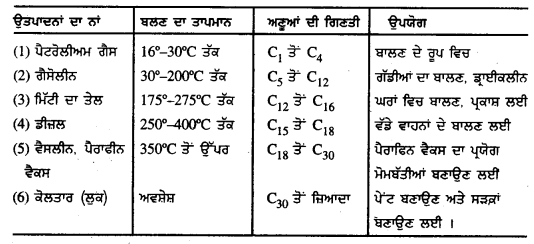
ਪ੍ਰਸ਼ਨ 2.
ਬਾਲਣ ਦੇ ਰੂਪ ਵਿਚ ਲੱਕੜੀ ਦੀ ਵਰਤੋਂ ਸਹੀ ਕਿਉਂ ਨਹੀਂ ਜਦੋਂ ਕਿ ਇਸ ਦੀ ਪ੍ਰਾਪਤੀ ਜੰਗਲਾਂ ਦੁਆਰਾ ਦੋਬਾਰਾ ਕੀਤੀ ਜਾ ਸਕਦੀ ਹੈ।
ਉੱਤਰ-
ਜੰਗਲਾਂ ਤੋਂ ਪ੍ਰਾਪਤ ਬਾਲਣ ਵਾਲੀ ਲੱਕੜੀ (Fire Wood) ਨਵਿਆਉਣਯੋਗ ਉਰਜਾ (Renewable Energy) ਦਾ ਮੁੱਖ ਸੋਮਾ ਹੈ ਪਰ ਫਿਰ ਵੀ ਇਸ ਨੂੰ ਬਾਲਣ ਦੇ ਰੂਪ ਵਿਚ ਉਪਯੋਗ ਕਰਨਾ ਉੱਚਿਤ ਨਹੀਂ ਹੈ ਕਿਉਂਕਿ ਇਕ ਦਰੱਖ਼ਤ ਨੂੰ ਵੱਡਾ ਹੋਣ ਲਈ 15 ਸਾਲ ਦਾ ਸਮਾਂ ਲੱਗਦਾ ਹੈ, ਇਸ ਦੇ ਨਾਲ-ਨਾਲ ਜੰਗਲਾਂ ਦੀ ਅੰਧਾ-ਧੁੰਦ ਕਟਾਈ ਨਾਲ ਵਾਤਾਵਰਣੀ ਸਥਿਤੀਆਂ ਵਿਚ ਅਸੰਤੁਲਨ ਪੈਦਾ ਹੁੰਦਾ ਹੈ। ਲੱਕੜੀ ਬਲਣ ਨਾਲ ਵੱਡੀ ਮਾਤਰਾ ਵਿਚ ਧੂੰਆਂ ਨਿਕਲਦਾ ਹੈ ਜਿਸ ਨਾਲ ਹਵਾ ਦਾ ਪ੍ਰਦੂਸ਼ਣ ਫੈਲਦਾ ਹੈ। ਇਸ ਤਰ੍ਹਾਂ ਬਲਣ ਵਾਲੀ ਲੱਕੜੀ ਨੂੰ ਊਰਜਾ ਦਾ ਉੱਚਿਤ ਸੋਮਾ ਨਹੀਂ ਮੰਨਿਆ ਜਾਂਦਾ ਹੈ।
ਪ੍ਰਸ਼ਨ 3.
ਖਣਿਜ ਤੇਲਾਂ ਦਾ ਮਹੱਤਵ ਵੱਧਣ ਦੇ ਕਾਰਨ ਸਪੱਸ਼ਟ ਕਰੋ।
ਉੱਤਰ-
ਕੋਲੇ ਨਾਲੋਂ ਖਣਿਜ ਤੇਲ ਦਾ ਮਹੱਤਵ ਦਿਨ-ਪ੍ਰਤੀ-ਦਿਨ ਵੱਧਦਾ ਜਾ ਰਿਹਾ ਹੈ। ਇਸ ਦੇ ਮਹੱਤਵ ਦੇ ਵੱਧਣ ਦੇ ਹੇਠ ਲਿਖੇ ਕਾਰਨ ਹਨ –
- ਕੋਲੇ ਦੇ ਮੁਕਾਬਲੇ ਖਣਿਜ ਤੇਲ ਨੂੰ ਕੱਢਣਾ ਸੌਖਾ ਅਤੇ ਆਸਾਨ ਹੈ ਅਤੇ ਇਹ ਬਹੁਤ ਸਸਤਾ ਹੈ।
- ਕੋਲੇ ਨਾਲੋਂ ਇਸ ਨੂੰ ਇਕ ਥਾਂ ਤੋਂ ਦੂਸਰੀ ਥਾਂ ਪਹੁੰਚਾਉਣਾ ਸਸਤਾ ਅਤੇ ਆਸਾਨ ਹੈ।
- ਇਸ ਦੀ ਬਲਣ ਸ਼ਕਤੀ ਵੱਧ ਹੋਣ ਨਾਲ ਮਸ਼ੀਨਾਂ ਦੀ ਗਤੀ ਵੱਧ ਹੋ ਜਾਂਦੀ ਹੈ।
- ਤੇਲ ਦਾ ਭੰਡਾਰਨ ਆਸਾਨੀ ਨਾਲ ਕੀਤਾ ਜਾ ਸਕਦਾ ਹੈ।
- ਆਵਾਜਾਈ ਦੇ ਸਾਧਨਾਂ ਵਿਚ ਇਸ ਦਾ ਉਪਯੋਗ ਬਹੁਤ ਲਾਭਕਾਰੀ ਸਿੱਧ ਹੋਇਆ ਹੈ।
ਪ੍ਰਸ਼ਨ 4.
ਭਾਰਤ ਵਿਚ ਪਾਏ ਜਾਣ ਵਾਲੇ ਤੇਲ ਕੱਢਣ ਦੇ ਸਥਾਨਾਂ ਦਾ ਵਰਣਨ ਕਰੋ ।
ਉੱਤਰ-
ਭਾਰਤ ਵਿਚ ਤੇਲ ਹੇਠ ਲਿਖੇ ਸਥਾਨਾਂ ‘ਤੇ ਪਾਇਆ ਜਾਂਦਾ ਹੈ –
1. ਅਸਾਮ ਵਿਚ ਤੇਲ ਦੀਆਂ ਥਾਂਵਾਂ (Oil deposits of Assam)- ਭਾਰਤ ਦੇ ਪੂਰਬੀ ਭਾਗਾਂ ਵਿੱਚ ਪ੍ਰਸਿੱਧ ਤੇਲ ਉਤਪਾਦਕ ਥਾਂਵਾਂ-ਲਖੀਮਪੁਰ, ਡਿਬਰੁਗੜ੍ਹ, ਡਿਗਈ ਮੁੱਕੁਮ ਅਤੇ ਸੁਰਮਾਘਾਟੀ ਵਿਚ ਬਦਰੁਪੁਰ, ਮਸੀਮਪੁਰ ਪਥਰੀਆ ਆਦਿ ‘ਤੇ ਪਾਇਆ ਜਾਂਦਾ ਹੈ। ਤੇਲ ਦੇ ਇਸ ਖੇਤਰ ਵਿੱਚ ਬੜੌਦਾ, ਅਹਿਮਦਾਬਾਦ ਕਾਲੋਲ, ਨਵਗਾਂਵ ਅਤੇ ਲਿਊਨੇਜ਼ਮੀ ਵੀ ਸ਼ਾਮਿਲ ਹਨ ।
2. ਗੁਜਰਾਤ ਦਾ ਤੇਲ ਖੇਤਰ (Oil deposits of Gujarat)-ਗੁਜਰਾਤ ਵਿਚ ਤੇਲ ਬੜੌਦਾ, ਅਹਿਮਦਾਬਾਦ, ਨਵਰਾਂਵ ਕਤਲੋਲ, ਅੰਕਲੇਸ਼ਵਰ ਅਤੇ ਲੁਨੇਜ ਤਕ 15360 ਵਰਗ ਕਿਲੋਮੀਟਰ ਖੇਤਰ ਵਿਚ ਪਾਇਆ ਜਾਂਦਾ ਹੈ। ਅੰਕਲੇਸ਼ਵਰ ਅਤੇ ਖੰਭਾਤ ਖੇਤਰ ਵਿਚ ਖਣਿਜ ਤੇਲ ਬਹੁਤ ਵੱਡੀ ਮਾਤਰਾ ਵਿਚ ਪਾਇਆ ਜਾਂਦਾ ਹੈ।
![]()
3. ਸਮੁੰਦਰੀ ਕਿਨਾਰਿਆਂ ‘ਤੇ ਪਾਇਆ ਜਾਣ ਵਾਲਾ ਖੇਤਰ (Coastal Oil deposits)- ਭਾਰਤ ਵਿਚ ਸਮੁੰਦਰ ਦੇ ਕਿਨਾਰੇ ਸੌਰਾਸ਼ਟਰ ਵਿਚ ਭਾਵਨਗਰ ਤੋਂ 45 ਕਿਲੋਮੀਟਰ ਦੂਰ ਅਰਬ ਸਾਗਰ ਵਿਚ ਸਥਿਤ ਮਾਲਿਆ ਬੇਟ ਅਤੇ ਮਹਾਰਾਸ਼ਟਰ ਦੇ ਮਹਾਂਦੀਪ ਨਿਮਚ ਤੱਟ ਤੋਂ ਮੁੰਬਈ ਤੋਂ 167 KM. ਉੱਤਰ-ਪੱਛਮ ਵਿਚ ਸਥਿਤ ਬੰਬੇ ਹਾਈ ਨਾਂ ਦੇ ਸਥਾਨ ‘ਤੇ ਹੈ। ਬੰਬੇ ਹਾਈ ਦੇ ਤੇਲ ਕਾਰਖ਼ਾਨੇ ਵਿਚ 1500 ਮੀਟਰ ਦੀ ਡੂੰਘਾਈ ਤੋਂ ਤੇਲ ਪ੍ਰਾਪਤ ਕੀਤਾ ਜਾਂਦਾ ਹੈ।
(ਸ) ਵੱਡੇ ਉੱਤਰਾਂ ਵਾਲੇ ਪ੍ਰਸ਼ਨ-
ਪ੍ਰਸ਼ਨ-
ਕੁਦਰਤੀ ਗੈਸ (Natural Gas) ਦੇ ਉਤਪਾਦਨ ਅਤੇ ਉਪਯੋਗ ਤੇ ਨੋਟ ਲਿਖੋ ।
ਉੱਤਰ-
ਕੁਦਰਤੀ ਗੈਸ (Natural Gas) ਇਕ ਮਹੱਤਵਪੂਰਨ ਪਥਰਾਟ ਬਾਲਣ (Fossil Fuel) ਹੈ। ਕੁਦਰਤੀ ਗੈਸ ਵੀ ਉਸੇ ਤਰ੍ਹਾਂ ਹੀ ਬਣਦੀ ਹੈ ਜਿਸ ਤਰ੍ਹਾਂ · ਲੱਖਾਂ ਸਾਲ ਪਹਿਲਾਂ ਸਮੁੰਦਰੀ ਜੀਵਾਂ ਦੇ ਦੱਬੇ ਰਹਿਣ ਕਾਰਨ ਖਣਿਜ ਤੇਲ ਬਣਦਾ ਹੈ। ਜ਼ਿਆਦਾਤਰ ਕੁਦਰਤੀ ਗੈਸ ਪੈਟਰੋਲੀਅਮ ਦੇ ਭੰਡਾਰ ਉੱਪਰ ਜਮਾਂ ਹੁੰਦੀ ਹੈ। ਕੁਦਰਤੀ ਗੈਸ ਵੱਖ-ਵੱਖ ਹਾਈਡੋਕਾਰਬਨਾਂ ਦਾ ਮਿਸ਼ਰਨ ਹੈ ਇਸ ਵਿਚ ਮੁੱਖ ਤੌਰ ‘ਤੇ ਮੀਥੇਨ 95% ਤਕ ਹੁੰਦੀ ਹੈ। ਇਸ ਦੇ ਇਲਾਵਾ ਕੁੱਝ ਨਿਕਲਦਾ ਹੈ ਜਿਸ ਨਾਲ ਹਵਾ ਦਾ ਪ੍ਰਦੂਸ਼ਣ ਫੈਲਦਾ ਹੈ। ਇਸ ਤਰ੍ਹਾਂ ਬਲਣ ਵਾਲੀ ਲੱਕੜੀ ਨੂੰ ਉਰਜਾ ਦਾ ਉੱਚਿਤ ਸੋਮਾ ਨਹੀਂ ਮੰਨਿਆ ਜਾਂਦਾ ਹੈ। ਮਾਤਰਾ ਵਿਚ ਪੋਪੇਨ ਅਤੇ ਬਿਉਟੇਨ ਵੀ ਸ਼ਾਮਿਲ ਹੁੰਦੀਆਂ ਹਨ। ਕੁਦਰਤੀ ਗੈਸ ਇਕ ਬਹੁਤ ਹੀ ਸਾਫ਼ ਪਥਰਾਟ ਬਾਲਣ ਹੈ ਕਿਉਂਕਿ ਇਸ ਦੇ ਬਾਲਣ ਤੋਂ ਬਾਅਦ ਕੁੱਝ ਵੀ ਬਾਕੀ ਨਹੀਂ ਬਚਦਾ ਹੈ ਅਤੇ ਨਾ ਹੀ ਕੋਈ ਧੂੰਆਂ ਨਿਕਲਦਾ ਹੈ। ਕੁਦਰਤੀ ਗੈਸ ਤੋਂ ਕੋਈ ਵੀ ਜ਼ਹਿਰੀਲੀ ਗੈਸ ਨਹੀਂ ਨਿਕਲਦੀ ਹੈ ਜਿਸ ਨਾਲ ਹਵਾ ਦੁਸ਼ਿਤ ਨਹੀਂ ਹੁੰਦੀ ਹੋਵੇ। ਕੁਦਰਤੀ ਗੈਸ ਨੂੰ ਉਪਯੋਗ ਲਈ ਵੱਖ-ਵੱਖ ਰੂਪਾਂ ਵਿਚ ਪਰਿਵਰਤਿਤ ਕਰ ਲਿਆ ਜਾਂਦਾ ਹੈ।
ਕੁਦਰਤੀ ਗੈਸ ਵਿਚੋਂ ਬਿਉਟੇਨ, ਪ੍ਰੋਪੇਨ ਨੂੰ ਅਲੱਗ ਕਰ ਲਿਆ ਜਾਂਦਾ ਹੈ ਫਿਰ ਜ਼ਿਆਦਾ ਦਬਾਅ ਵਾਲੇ ਟੈਂਕਰਾਂ ਵਿਚ ਜਾਂ ਫਿਰ ਵਿਤ ਪੈਟਰੋਲੀਅਮ ਗੈਸ ਦੇ ਰੂਪ ਵਿਚ ਸਿਲੰਡਰਾਂ ਵਿਚ ਭਰ ਲਿਆ ਜਾਂਦਾ ਹੈ। ਇਸ ਤਰ੍ਹਾਂ ਇਸ ਦੀ ਵਰਤੋਂ ਖਾਣਾ ਬਣਾਉਣ ਅਤੇ ਗਰਮੀ ਪੈਦਾ ਕਰਨ ਲਈ ਕੀਤੀ ਜਾਂਦੀ ਹੈ। ਬਾਕੀ ਬਚੀ ਹੋਈ ਮਿਥੇਨ ਗੈਸ ਨੂੰ ਛੱਡਣ ਲਈ ਪਾਇਪ ਲਾਈਨ ਵਿਚ ਛੱਡ ਦਿੱਤਾ ਜਾਂਦਾ ਹੈ। ਕਾਫ਼ੀ ਘੱਟ ਤਾਪਮਾਨ ‘ਤੇ ਕੁਦਰਤੀ ਗੈਸ ਨੂੰ ਵਿਤ ਕੁਦਰਤੀ ਗੈਸ ਵਿਚ ਬਦਲ ਲਿਆ ਜਾਂਦਾ ਹੈ। ਕੁਦਰਤੀ ਗੈਸ ਨੂੰ ਉੱਚ ਦਬਾਅਤੇ C.N.G. ਵਿਚ ਬਦਲ ਕੇ ਪ੍ਰਯੋਗ ਵਿਚ ਲਿਆਂਦਾ ਜਾਂਦਾ ਹੈ।
ਕੁਦਰਤੀ ਗੈਸ ਦੀ ਵਰਤੋਂ ਉਪਯੋਗ (Uses of Natural Gas)-ਕੁਦਰਤੀ ਗੈਸ ਦੇ ਉਪਯੋਗ ਹੇਠ ਲਿਖੇ ਹਨ –
- ਇਸ ਦੀ ਵਰਤੋਂ ਖਾਣਾ ਬਣਾਉਣ ਲਈ ਅਤੇ ਊਰਜਾ (ਗਰਮੀ ਪੈਦਾ ਕਰਨ ਲਈ ਕੀਤੀ ਜਾਂਦੀ ਹੈ।
- ਵਿਤ ਕੁਦਰਤੀ ਗੈਸ ਦੀ ਵਰਤੋਂ ਬਾਲਣ ਦੇ ਰੂਪ ਵਿਚ ਵੀ ਕੀਤੀ ਜਾਂਦੀ ਹੈ।
- ਕੁਦਰਤੀ ਗੈਸ ਨੂੰ ਸ਼ਕਤੀ ਯੰਤਰਾਂ ਵਿਚ ਬਿਜਲੀ ਪੈਦਾ ਕਰਨ ਲਈ ਵਰਤਿਆ ਜਾਂਦਾ ਹੈ।
- ਸੀਮੇਂਟ, ਕੱਚ, ਇੱਟਾਂ ਅਤੇ ਖਾਦਾਂ ਬਣਾਉਣ ਦੇ ਉਦਯੋਗ ਵਿਚ ਕੁਦਰਤੀ ਗੈਸ ਨੂੰ ਬਾਲਣ ਦੇ ਰੂਪ ਵਿਚ ਵਰਤਿਆ ਜਾਂਦਾ ਹੈ।
- ਕੁਦਰਤੀ ਗੈਸ ਤੋਂ ਪ੍ਰਾਪਤ ਪੈਟਰੋ ਰਸਾਇਣਾਂ ਨੂੰ ਪਲਾਸਟਿਕ, ਦਵਾਈਆਂ, ਡਿਟਰਜੈਂਟ, . ਖਾਦਾਂ ਆਦਿ ਬਣਾਉਣ ਦੇ ਲਈ ਵਰਤਿਆ ਜਾਂਦਾ ਹੈ।
- C.N.G. (Compressed Natural Gas) ਦਾ ਪ੍ਰਯੋਗ ਆਵਾਜਾਈ ਦੇ ਸਾਧਨਾਂ ਵਿਚ ਬਾਲਣ ਦੇ ਰੂਪ ਵਿਚ ਹੁੰਦਾ ਹੈ।
ਸਾਡੇ ਦੇਸ਼ ਵਿਚ ਇਸ ਸਮੇਂ (ਵੇਲੇ) 638 ਅਰਬ ਘਣ ਮੀਟਰ ਕੁਦਰਤੀ ਗੈਸ ਦੇ ਭੰਡਾਰ ਹਨ। ਮੁੱਖ ਭੰਡਾਰ ਅਸਾਮ, ਗੁਜਰਾਤ ਅਤੇ ਬੰਬੇ ਹਾਈ ਵਿਚ ਹਨ।

